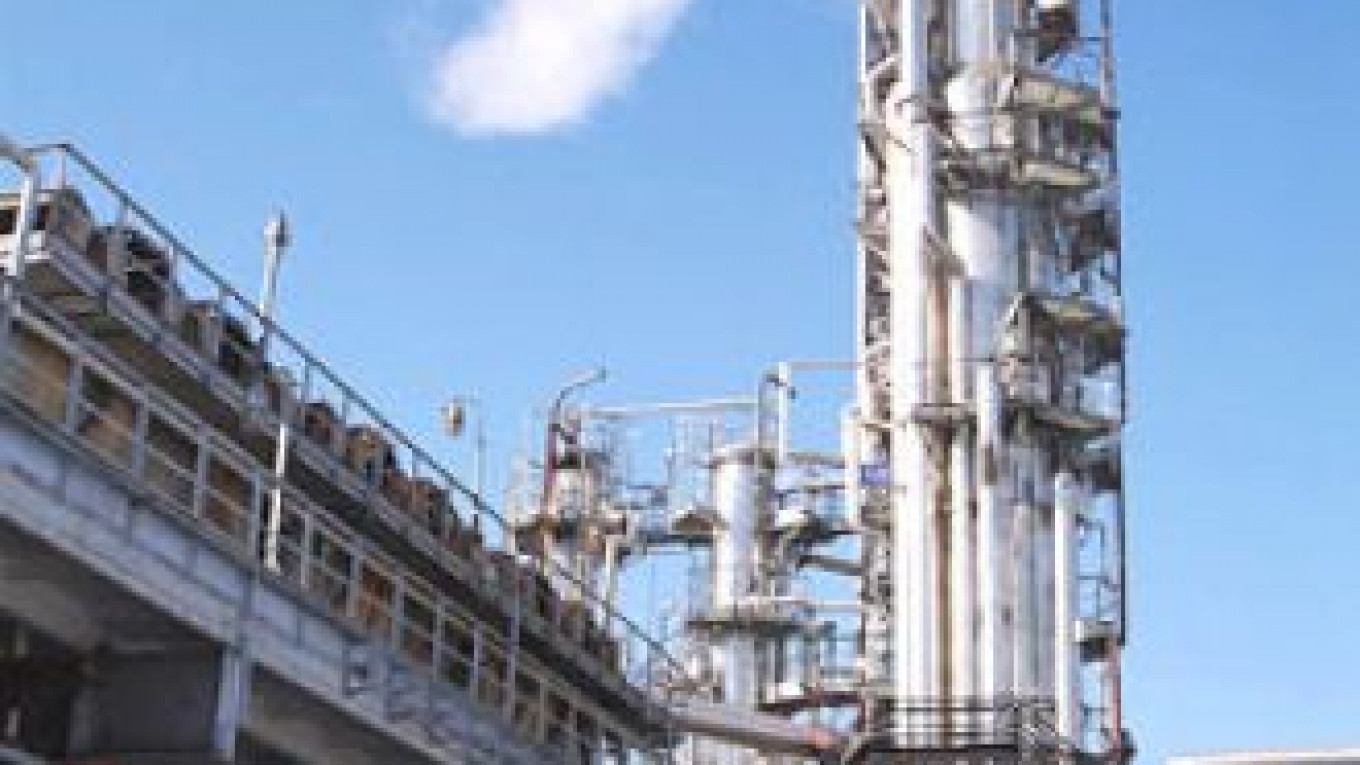TNK-BP said it was encouraged by the results of unconventional drilling at an old West Siberian field, the first of several projects to determine the efficacy of "fracking" to boost output in the declining province.
TNK-BP, half-owned by BP, said it had drilled a production well in April at the Severo-Khokhryakskoye field, near its main production assets in West Siberia, and resumed drilling on a larger scale after receiving encouraging results.
"The company has selected seven high-priority development sites with hard-to-recover reserves with a potential volume of 600 million tons," it said in a statement Wednesday. "Increasing the efficiency of the development of these resources demands a complex approach, in which new technologies play a key role."
President Vladimir Putin, in the final days of his term as prime minister, promised to support a package of tax measures, including for projects that require costly horizontal drilling and hydraulic fracturing to pry so-called "tight oil" out of layers of rock.
The measures are designed to encourage oil companies to turn around declining fields in Russia's Soviet-era oil heartland of West Siberia.
Putin said companies had the potential to add 1 million to 2 million barrels per day of tight oil and high-viscosity oil to Russian output, which has stabilized near a post-Soviet high of around 10.3 million bpd and could decline.
TNK-BP's seven projects include drilling in the Bazhenov shale underneath other West Siberian fields and a shallow tight formation at Samotlor, the Soviet supergiant where field managers are working to slow declines of up to 1 percent per year.
A Message from The Moscow Times:
Dear readers,
We are facing unprecedented challenges. Russia's Prosecutor General's Office has designated The Moscow Times as an "undesirable" organization, criminalizing our work and putting our staff at risk of prosecution. This follows our earlier unjust labeling as a "foreign agent."
These actions are direct attempts to silence independent journalism in Russia. The authorities claim our work "discredits the decisions of the Russian leadership." We see things differently: we strive to provide accurate, unbiased reporting on Russia.
We, the journalists of The Moscow Times, refuse to be silenced. But to continue our work, we need your help.
Your support, no matter how small, makes a world of difference. If you can, please support us monthly starting from just $2. It's quick to set up, and every contribution makes a significant impact.
By supporting The Moscow Times, you're defending open, independent journalism in the face of repression. Thank you for standing with us.
Remind me later.






